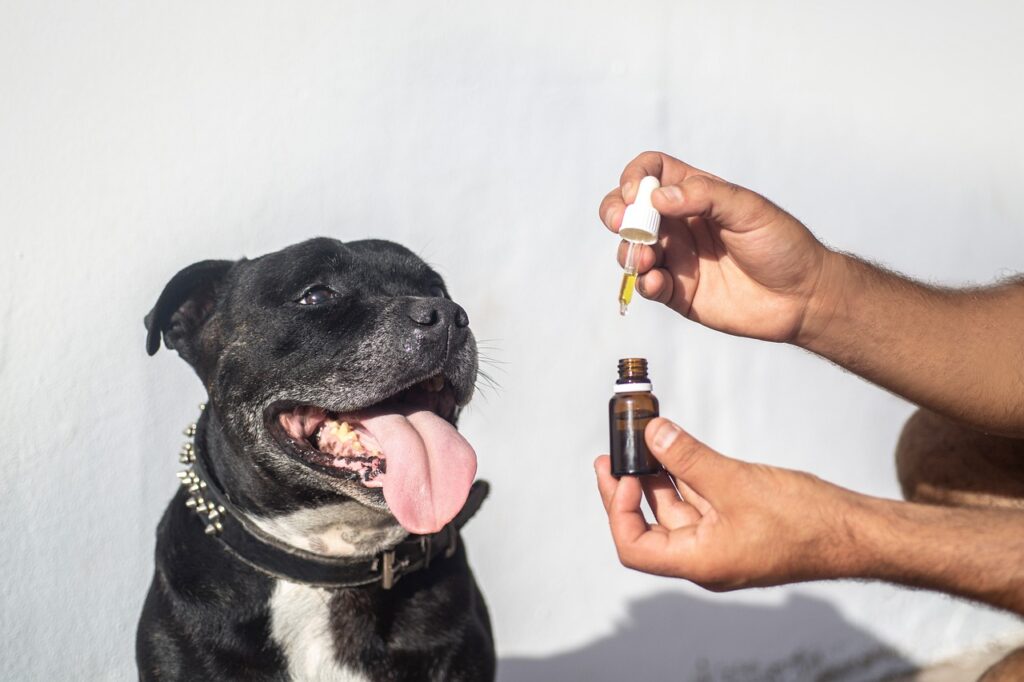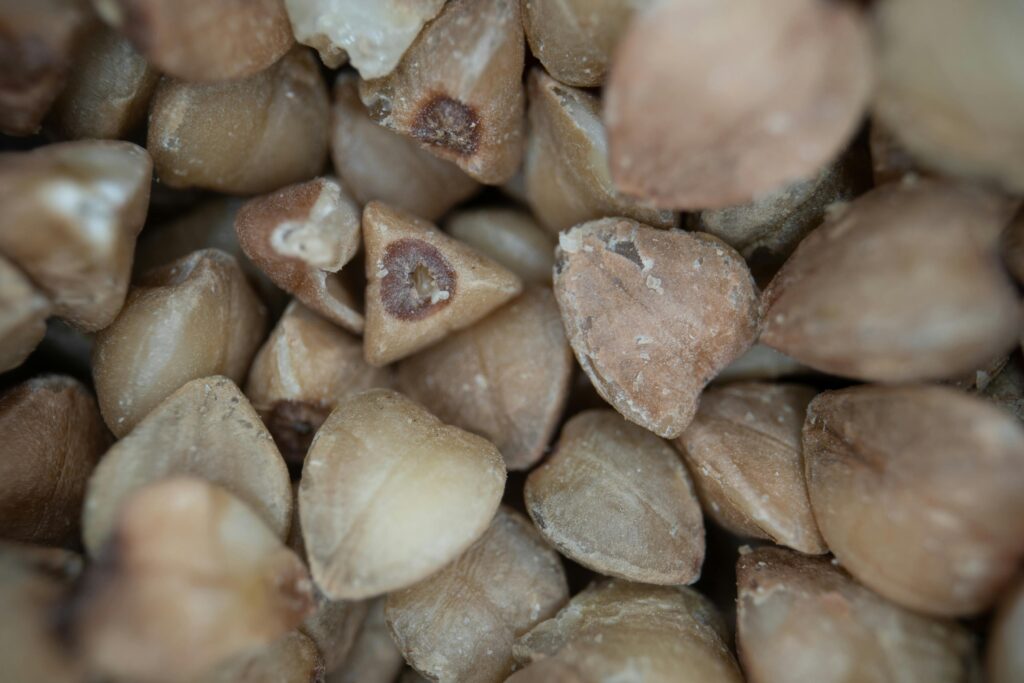- Introduction to Coconut Oil for Dogs
- Health Benefits of Coconut Oil for Dogs
- Top 5 Ways to Use Coconut Oil for Dogs
- How to Safely Introduce Coconut Oil to Your Dog
- Homemade Dog Treats with Coconut Oil
- Common Myths and Misconceptions
- Vet Opinions and Clinical Studies
- Alternatives to Coconut Oil
- Real-Life Success Stories
- Final Thoughts on Using Coconut Oil for Dogs
- FAQs
Introduction to Coconut Oil for Dogs
What is Coconut Oil?
Coconut oil can be used for dogs topically to soothe skin conditions like dryness, itchiness, and hot spots, and it can also be given orally as a supplement to support digestion and overall health. Coconut oil is a natural, edible oil extracted from mature coconuts. It’s primarily composed of saturated fats, most notably medium-chain triglycerides (MCTs), which are known for their numerous health benefits. These fats include lauric acid, caprylic acid, and capric acid, all of which have antimicrobial, antifungal, and anti-inflammatory properties. For years, coconut oil has been celebrated for its wide-ranging benefits for humans, from cooking to skincare. But recently, it’s making waves in the pet care world too—especially for dogs.
So why the sudden surge in popularity? It turns out that dogs can benefit from coconut oil just like humans. From improving their skin and coat to supporting digestion and even enhancing cognitive function, coconut oil can be a real game-changer when it comes to natural pet wellness. And best of all—it’s affordable, easy to use, and dogs usually love the taste.
Why Coconut Oil is Gaining Popularity in Pet Care
Coconut oil isn’t some new-age fad. It’s been used traditionally in many parts of the world for centuries. However, what’s changed is the growing awareness of natural and holistic health approaches for pets. Pet owners today are increasingly looking for alternatives to chemical-laden products, prescription meds with side effects, and expensive veterinary treatments. Enter coconut oil—a simple, natural remedy that addresses multiple health concerns.
Another reason it’s gaining popularity is the backing from anecdotal and preliminary scientific evidence supporting its safety and effectiveness. Social media is filled with glowing testimonials from dog owners, and more veterinarians are warming up to the idea of using natural supplements in conjunction with conventional treatments. Coconut oil isn’t just hype—it’s a versatile addition to your dog’s wellness toolkit.
Health Benefits of Coconut Oil for Dogs
Key Nutrients in Coconut Oil
Coconut oil is rich in saturated fats, which make up about 90% of its content. Among these, medium-chain fatty acids (MCFAs) are the most beneficial. Lauric acid is the standout—it’s known for its ability to kill harmful bacteria, viruses, and fungi. It also helps reduce inflammation and supports healthy immune function. Other components include:
- Caprylic acid: Antifungal and gut-health supportive.
- Capric acid: Known for its antimicrobial properties.
- MCTs: Support metabolism and provide quick energy.
These nutrients work synergistically to boost your dog’s overall health. Unlike long-chain fatty acids found in many other oils, MCFAs are easily digestible and quickly metabolized into energy, making them ideal for both older dogs and active breeds.
How Coconut Oil Supports a Dog’s Overall Wellbeing
Let’s break this down: Coconut oil can contribute to nearly every aspect of your dog’s health. Its antibacterial properties help fight infections; its healthy fats support brain function, especially in senior dogs; and its ability to soothe skin makes it a go-to remedy for allergies and irritations. It’s not just about treating problems—coconut oil is also preventive.
Here’s a glimpse of what it can do:
- Improve digestion and nutrient absorption
- Enhance immune function
- Increase energy and stamina
- Improve skin conditions and coat quality
- Promote weight loss in overweight dogs
- Support cognitive function in aging dogs
All of this with just a teaspoon or two of a natural oil? That’s why so many pet owners swear by it.
Top 5 Ways to Use Coconut Oil for Dogs
1. Skin and Coat Health
There’s nothing worse than seeing your dog constantly scratching, biting, or suffering from irritated skin. This is where coconut oil shines. When applied topically, it works almost like a miracle balm—soothing inflammation, reducing itchiness, and speeding up healing from hot spots, rashes, or wounds. And when ingested, it nourishes your dog’s skin from the inside out.
Treating Dry Skin and Itchiness
If your pup suffers from dry skin, eczema, or flea allergies, a coconut oil rub can bring instant relief. Just scoop a small amount into your hands, warm it up, and massage it into your dog’s coat and skin. It absorbs quickly and doesn’t leave behind a greasy mess. Plus, it smells great!
The lauric acid fights off harmful microbes that may be lurking on the skin’s surface. Many dog shampoos are filled with harsh chemicals that strip away natural oils—coconut oil replenishes them, keeping the skin hydrated and healthy.
Enhancing Coat Shine and Texture
Want your dog’s fur to look show-dog ready? Coconut oil helps with that, too. When used regularly, it adds a natural shine to your dog’s coat, reduces shedding, and makes the fur soft to the touch. Some owners mix a small amount into their dog’s food, while others apply it externally after baths. Either way, you’ll notice a difference in just a few weeks.
Whether your dog has long, silky hair or a short, dense coat, coconut oil enhances texture, reduces tangles, and gives them that “just groomed” look every day.
2. Boosting Digestive Health
Your dog’s digestive system is crucial for absorbing nutrients and eliminating waste. When something goes wrong, it can lead to a host of issues—gas, bloating, diarrhea, or even malnutrition. Coconut oil is a simple, natural remedy that supports digestive health in multiple ways.
Coconut Oil as a Natural Digestive Aid
Coconut oil works as a mild laxative, helping things move smoothly through the digestive tract. If your dog is constipated, a small amount can make a big difference. On the flip side, if your dog suffers from irregular bowel movements, the anti-inflammatory properties of coconut oil help calm the digestive lining and reduce irritation.
It also enhances nutrient absorption, especially of fat-soluble vitamins like A, D, E, and K. Dogs on processed diets often have trouble assimilating these nutrients efficiently. Coconut oil helps optimize that process, ensuring your pup gets the most from every bite.
Managing Parasites with Coconut Oil
Here’s something you probably didn’t know: coconut oil can help manage internal parasites. Lauric acid, a major component of coconut oil, turns into monolaurin in the body, which can help combat harmful microorganisms like bacteria, viruses, and even parasites.
It doesn’t replace vet-prescribed dewormers, but it’s a great addition to your parasite prevention regimen. Some studies suggest that coconut oil may help reduce the presence of Giardia and other common intestinal issues in dogs. For a dog that’s constantly exposed to outdoor environments, this is a powerful benefit.
3. Supporting Immune Function
A strong immune system is your dog’s first line of defense against illness. Coconut oil doesn’t just boost immunity—it reinforces it. That’s especially useful for dogs prone to infections, allergies, or immune-related diseases.
Antibacterial and Antiviral Properties
Coconut oil’s MCTs are naturally antimicrobial. Lauric acid is particularly potent, known to eliminate a wide range of pathogens. This makes coconut oil useful not just as a food supplement, but also as a topical treatment for minor wounds and cuts.
Using coconut oil daily—either orally or topically—can help your dog fight off illnesses before they take hold. It’s a holistic layer of protection that doesn’t come with the harsh side effects of synthetic medications.
Preventing Infections and Illness
If your pup has chronic ear infections, skin conditions, or seasonal allergies, it could be a sign of a compromised immune system. Coconut oil helps reduce inflammation and promote balance, which can reduce the frequency and severity of these issues.
Its soothing properties make it a great ingredient for ear cleaning or paw balm. Just apply a dab to irritated areas and let the oil work its magic. It’s gentle, natural, and effective—a win-win for you and your furry friend.
4. Aiding in Weight Management
Weight issues in dogs are more common than most people think. Whether it’s due to a lack of exercise, overfeeding, or breed-specific tendencies, obesity can lead to serious health problems like diabetes, arthritis, and heart disease. Coconut oil can help regulate your dog’s weight naturally.
Metabolism-Boosting Effects of MCTs
The MCTs in coconut oil are rapidly converted into energy rather than being stored as fat. This metabolic boost makes your dog more active and helps burn more calories, even at rest. In other words, coconut oil can act like a natural fat burner.
Some vets even recommend coconut oil as part of a low-carb or high-protein diet plan for overweight dogs. It helps keep them satiated while increasing their energy output. If you have a senior dog or one with limited mobility, this can be especially helpful.
Using Coconut Oil in a Dog’s Diet
You can mix coconut oil directly into your dog’s food—start with a small amount and gradually increase it over time. For most dogs, 1 teaspoon per 10 pounds of body weight per day is a safe guideline. Always start slow to avoid digestive upset.
You’ll begin to notice improvements in energy levels, coat quality, and even temperament. Dogs that feel better physically often act more balanced emotionally. Coconut oil not only trims the waistline—it enhances your dog’s quality of life overall.
5. Oral Health Benefits
Dog breath isn’t just an inconvenience—it’s a sign that something might be wrong in your pup’s mouth. From gum disease to plaque buildup, oral health issues can lead to serious complications if left untreated. Coconut oil offers a safe, tasty solution to many common dental problems.
Reducing Bad Breath Naturally
Lauric acid has powerful antibacterial properties that target the root causes of bad breath. Many times, it’s bacteria in the mouth and digestive tract that cause that unpleasant odor. When your dog ingests coconut oil, it helps to kill off those odor-causing microbes from the inside.
For topical use, you can apply coconut oil directly to your dog’s gums or even use it to brush their teeth. It’s safe to ingest and far less abrasive than commercial dog toothpaste, which often contains artificial sweeteners or chemicals.
Preventing Plaque and Gingivitis
Gingivitis and periodontal disease are two of the most common issues in dogs over the age of three. If left untreated, these can lead to tooth loss and infections that may affect the heart, liver, and kidneys. Coconut oil helps by reducing inflammation and fighting bacteria that cause plaque and tartar.
Here’s a simple routine: use a soft toothbrush or finger brush, apply a dab of coconut oil, and gently scrub your dog’s teeth 2-3 times a week. Within weeks, you’ll likely see healthier gums, cleaner teeth, and a much fresher breath.
How to Safely Introduce Coconut Oil to Your Dog

Recommended Dosages by Size and Breed
While coconut oil is generally safe for dogs, the key to seeing its benefits without causing issues is all in the dosage. Not every dog can tolerate the same amount, so it’s important to start slow and adjust based on your dog’s size, breed, and tolerance level.
Here’s a quick guide to help you start:
| Dog Weight | Starting Dose | Maintenance Dose |
|---|---|---|
| Under 10 lbs | 1/4 tsp per day | 1/2 tsp per day |
| 10-30 lbs | 1/2 tsp per day | 1 tsp per day |
| 30-50 lbs | 1 tsp per day | 1.5 tsp per day |
| 50-90 lbs | 1.5 tsp per day | 2 tsp per day |
| Over 90 lbs | 2 tsp per day | 1 tbsp per day |
Start with the lower range and work up to the maintenance dose over a couple of weeks. Add it to their food once a day and monitor your dog’s reaction. If they handle it well, you can slowly increase the amount.
Also, consider your dog’s activity level. An active, working dog may benefit from slightly more, while a less active or older dog might need a bit less.
Signs of Coconut Oil Sensitivity in Dogs
Though rare, some dogs may be sensitive or allergic to coconut oil. It’s important to know the signs of intolerance so you can discontinue use if needed. Watch for the following symptoms after introducing coconut oil:
- Loose stool or diarrhea
- Vomiting
- Lethargy
- Excessive itching or hives
- Upset stomach
If any of these signs appear, stop using the oil immediately and consult your vet. You might be able to reintroduce it later in smaller doses, or your vet may suggest an alternative.
Dogs with pancreatitis or issues with fat metabolism should only be given coconut oil under veterinary supervision. Always err on the side of caution when introducing any new supplement.
Homemade Dog Treats with Coconut Oil
Simple Recipes to Try at Home
One of the easiest and most fun ways to give your dog coconut oil is through homemade treats. Not only do you control the ingredients, but you can also tailor them to suit your dog’s taste and dietary needs. Here are a couple of dog-approved recipes:
Frozen Coconut Pup Bites
- 1/2 cup coconut oil (melted)
- 1/2 cup peanut butter (unsalted, no xylitol)
- 1 ripe banana
Blend everything together, pour into silicone molds or ice cube trays, and freeze for a few hours. These are perfect for summer and give your dog a cool, healthy treat.
Coconut and Pumpkin Biscuits
- 1/2 cup coconut oil (melted)
- 1 cup canned pumpkin (pure, not pie filling)
- 2.5 cups oat flour or whole wheat flour
Mix all ingredients, form into small biscuits, and bake at 350°F (175°C) for 30 minutes. Store in an airtight container for up to a week.
Ingredients to Avoid When Using Coconut Oil
Coconut oil is generally safe, but be cautious about what you combine it with. Never mix it with ingredients like:
- Xylitol: A sugar substitute that’s toxic to dogs
- Chocolate: Even small amounts can be dangerous
- Onions or garlic: These are harmful even in powdered form
- Macadamia nuts: Extremely toxic to dogs
Stick with wholesome, dog-safe ingredients. When in doubt, keep it simple: fruits like blueberries or apples (without seeds), veggies like carrots or sweet potatoes, and lean meats work great.
Common Myths and Misconceptions

Is Coconut Oil Toxic to Dogs?
Let’s clear this up right now—coconut oil is not toxic to dogs. In fact, it’s one of the few natural oils that dogs can digest easily and safely. The confusion often arises because coconut oil is high in saturated fat, and many people assume that must mean it’s harmful.
However, the saturated fat in coconut oil is made up of MCTs, which are metabolized differently than the long-chain fats found in animal fat or processed oils. They’re converted into energy almost instantly and don’t get stored in fat cells as easily.
That said, moderation is key. Overfeeding any fat, coconut oil included, can lead to weight gain or digestive issues. But calling it toxic? That’s a myth.
Debunking the “Fat Makes Dogs Fat” Myth
Another common misconception is that fat automatically leads to obesity in dogs. That’s only partly true. The type of fat and total caloric intake matter much more than fat alone.
Coconut oil can actually help some overweight dogs lose weight by boosting metabolism and increasing energy. It’s also highly satiating, meaning your dog may feel fuller and beg for treats less often.
Balanced with proper portion control and regular exercise, healthy fats like coconut oil are an asset, not a liability, in your dog’s diet.
Vet Opinions and Clinical Studies
What the Experts Say
Veterinarians used to be more skeptical of coconut oil, but in recent years, many holistic vets have begun to recommend it, especially for dogs with skin issues, allergies, or digestive problems. It’s not considered a cure-all, but rather a valuable supplemental tool.
Dr. Karen Becker, one of the leading voices in integrative veterinary medicine, frequently mentions coconut oil in her recommendations for natural pet care. Many vets now acknowledge its anti-inflammatory and antimicrobial properties and recommend it in small doses for everything from skin treatments to digestive support.
Traditional vets may still advise caution due to the high fat content, which is understandable. However, more professionals are recognizing that when used appropriately, coconut oil is not only safe—it’s beneficial.
Scientific Backing Behind Coconut Oil Benefits
While there’s limited research specifically on dogs, multiple studies on MCTs and lauric acid in humans and animals support the claims. Some notable findings include:
- Antiviral properties: Lauric acid has been shown to disrupt lipid-coated viruses.
- Weight management: MCTs increase energy expenditure and fat oxidation.
- Improved digestion: Coconut oil helps improve gut microbiota balance.
More research is still needed in the veterinary field, but early data and decades of anecdotal evidence support its safety and usefulness when introduced correctly.
Alternatives to Coconut Oil
Comparing Coconut Oil with Fish Oil and Olive Oil
Coconut oil isn’t the only healthy oil option for dogs, but how does it compare to others like fish oil and olive oil?
| Oil Type | Main Benefits | Best For | Drawbacks |
|---|---|---|---|
| Coconut Oil | Antibacterial, digestive aid, skin health | Dogs with allergies or sensitive stomachs | Not high in omega-3s |
| Fish Oil | High in omega-3s, reduces inflammation, improves joint health | Dogs with arthritis, heart conditions | Can spoil quickly, fishy odor |
| Olive Oil | Rich in antioxidants, helps with weight loss and skin | Older dogs, heart health | Can cause diarrhea in high doses |
Each oil has its strengths. Fish oil is best for anti-inflammatory and joint health due to its omega-3s. Olive oil works well for older dogs needing antioxidant support. Coconut oil is ideal for dogs needing an immune, digestive, or skin boost.
You can even rotate between them weekly to give your dog a balanced variety, or mix small amounts under your vet’s guidance.
When Coconut Oil Might Not Be the Best Choice
As beneficial as coconut oil can be, it’s not for every dog. If your pup has a medical history involving pancreatitis or trouble digesting fats, coconut oil might worsen the issue. Likewise, dogs with high cholesterol or on a low-fat diet may not benefit from it.
Always consult with your vet before introducing coconut oil, especially if your dog is on medication or has ongoing health concerns. You might be advised to try fish oil or flaxseed oil instead.
Real-Life Success Stories
Testimonials from Pet Owners
The proof is in the pudding—or in this case, the coconut oil. Thousands of dog owners across the globe have witnessed remarkable transformations in their pets just by introducing coconut oil into their daily routine.
Meet Bella, a 6-year-old Labrador who suffered from chronic dry skin and flaky patches. Her owner, Sarah, started applying coconut oil topically and added a teaspoon to her food once a day. Within three weeks, Bella’s coat was glossier, and her scratching stopped almost completely.
Then there’s Max, an aging Border Collie who was losing energy and mobility. After adding coconut oil to his food, his owner reported that Max became more active and seemed more mentally alert. His breath improved, too!
Social media is flooded with before-and-after photos showcasing shinier coats, happier dogs, and grateful pet parents. While everyone’s experience may differ, the overall sentiment is clear—coconut oil makes a positive impact.
Before and After Results
Here’s what many dog owners notice after 2–4 weeks of regular use:
- Shinier coat and less shedding
- Reduced itching and skin irritation
- Better digestion and firmer stools
- Increased energy and playfulness
- Improved breath and oral hygiene
These changes may seem subtle at first but become more noticeable over time. Take photos of your dog before you start using coconut oil and compare them a few weeks later. You might be amazed by the difference.
Final Thoughts on Using Coconut Oil for Dogs
Coconut oil is more than just a trendy ingredient—it’s a powerhouse of natural benefits that can drastically improve your dog’s life. From soothing itchy skin and boosting immunity to helping with digestion and bad breath, it’s one of the most versatile natural products you can add to your dog’s routine.
The key is moderation, consistency, and starting slow. Not every dog will respond the same way, and not every issue will be fixed overnight. But as part of a balanced, healthy lifestyle, coconut oil is a simple, affordable, and effective way to enhance your pup’s health and happiness.
As always, consult your vet before introducing new supplements, especially if your dog has medical issues or is on medications. Once you get the green light, you’ll be amazed at what this humble oil can do.
FAQs
Can I give my dog coconut oil every day?
Yes, most dogs can safely consume coconut oil daily in small amounts. Start with a low dose (about 1/4 tsp for small dogs, 1 tsp for medium dogs, and 1 tbsp for large dogs) and gradually increase to the maintenance level over 1–2 weeks.
What’s the best form of coconut oil for pets?
Look for unrefined, virgin, cold-pressed coconut oil. This retains the most nutrients and has not been treated with chemicals or heat. Avoid hydrogenated or refined versions.
Can coconut oil help with dog allergies?
Yes! Coconut oil’s anti-inflammatory and antibacterial properties can soothe allergy symptoms like itching, hot spots, and skin irritation. Apply topically and add a small amount to food for the best results.
Should I consult my vet before using coconut oil?
Always. While coconut oil is generally safe, dogs with certain conditions, like pancreatitis or fat sensitivity, should not consume it without veterinary approval.
How long does it take to see results with coconut oil?
Some benefits, like softer fur or improved digestion, appear in 1–2 weeks. Skin issues may take 2–4 weeks. For chronic conditions, allow at least 6 weeks of consistent use.
Please don’t forget to leave a review.




